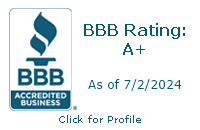
Monkeypox is a rare but severe disease that affects monkeys, apes, and humans. It causes painful skin lesions and itching, fever, and general unwellness. It spreads quickly among people who live in close quarters or have poor hygiene. The virus can be transmitted through direct contact with an infected person and objects that that person has handled. It’s unknown exactly how the virus became endemic in so many different parts of the world. However, it has been reported in Africa, Asia, and South America, primarily among remote villages with little access to education about basic hygiene practices. Read on to learn more about monkeypox prevention for ASCs — including how it’s contracted, where you might encounter it, what warning signs you should look for if someone you know has been exposed to it, and what you can do keep your facility safe from this nasty virus.
What is Monkeypox?
Monkeypox is a rare viral infection found in certain species of monkeys and rodents. Humans are at risk of contracting the disease if they directly contact an infected animal, their blood or bodily fluids, or items contaminated with those fluids, such as clothes, bedding, or food supplies. Individuals vaccinated against smallpox have some immunity to monkeypox, but vaccination against monkeypox is not standard and is not FDA-approved. There is also no specific antiviral treatment for monkeypox. Monkeypox is similar to smallpox in that both viruses belong to the same genus, Orthopoxvirus. However, monkeypox is less deadly than smallpox. The chance of fatality from monkeypox is about 10 percent, compared with less than 1 percent for smallpox.

How is Monkeypox Contracted?
Monkeypox can be contracted through direct contact with an infected animal or bodily fluids, such as blood or saliva. It may also be acquired through contaminated items that have come into contact with those fluids, such as clothing, bedding, and food supplies. Individuals most at risk of contracting monkeypox are people who work with infected animals, including laboratory technicians and people in the pet trade. Monkeypox is not contagious among humans. Very few human cases have been reported.
Where Can You Encounter Monkeypox?
Monkeypox outbreaks have been reported mainly in Africa, Asia, and South America. In Africa, outbreaks have occurred primarily in remote villages with little access to education about basic hygiene practices. In Asia, outbreaks have occurred in both wild and captive animals, including macaques and other types of monkeys. In the Western Hemisphere, monkeys in the Caribbean have been infected with a monkeypox-like virus, but the disease has not been reported in humans.
What are the Symptoms of Monkeypox?
The incubation period for monkeypox is about ten days. The first symptoms you may experience are fever, general unwellness, and itching. About one week after these initial symptoms, you may develop painful skin lesions. The lesions usually appear on the face, hands, and feet — areas of the body that directly contact the environment. The lesions typically form around where you have broken the skin, such as a cut or scratch. Unlike other pox viruses, monkeypox does not cause internal organ infection.

What Should You Know about Monkeypox Prevention for Ambulatory Surgery Centers?
While there is no specific antiviral treatment for monkeypox, early diagnosis and antibiotic treatment are essential to cut down on the risk of serious complications. Individuals who have contracted monkeypox should stay home from work or school until they are no longer contagious. You can help prevent the spread of the virus by taking good hygiene practices seriously, including covering up cuts and scrapes, washing your hands often with soap and warm water, and cleaning your work area often. When possible, you should also wear protective clothing, including gloves, goggles, protective clothing, and a face mask. If you are concerned about an outbreak at your facility, stay vigilant about reporting symptoms, and report any potential exposures to your infection control team. They will be able to help you identify and report any potential vulnerabilities. At the time of surgery scheduling of patients, ask the caller to rule out any potential of monkeypox with the surgical patient. Consider asking the patient at pre-op to confirm no symptoms of any skin conditions, flu-like feelings, or simply not feeling your norm. The checklist of requirements asked at pre-op should include any of the symptoms of monkeypox, monkeypox diagnosis, or lesions of the skin, whether new or old disease. Avoid skin-to-skin contact; staff with open wounds or cuts on the body should be removed from the staff schedule until resolution is obtained.
Conclusion
Monkeypox is a rare but severe disease that affects monkeys, apes, and humans. It causes painful skin lesions and itching, fever, and general unwellness. It spreads quickly among people who live in close quarters or have poor hygiene. The virus can be transmitted through direct contact with an infected person and objects that that person has handled. It’s unknown exactly how the virus became endemic in so many different parts of the world. However, it has been reported in Africa, Asia, and South America, primarily among remote villages with little access to education about basic hygiene practices. While there is no specific antiviral treatment for monkeypox, early diagnosis and antibiotic treatment are essential to reduce the risk of serious complications. You can help prevent the spread of the virus by taking good hygiene practices seriously, including covering up cuts and scrapes, washing your hands often with soap and warm water, and cleaning your work area often. Stay vigilant about reporting symptoms, and report any potential exposures to your infection control team.


Comments